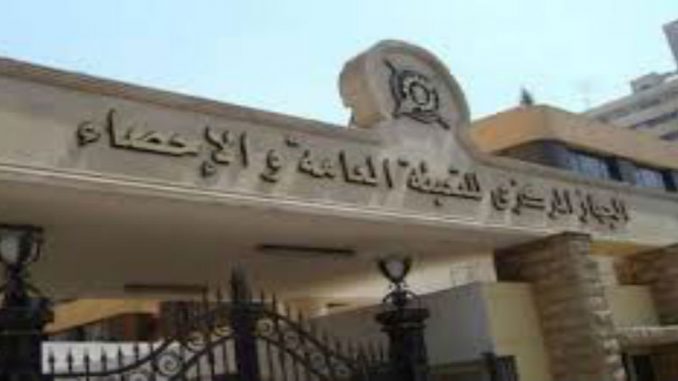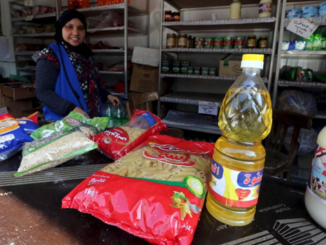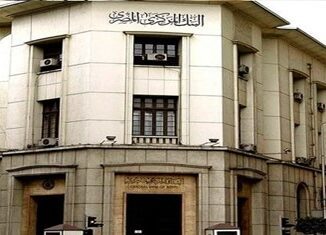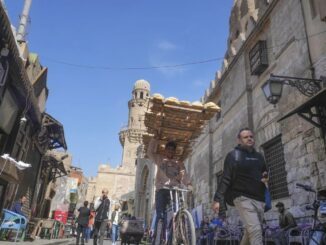
Egypt’s Central Agency for Public Mobilization and Statistics (CAPMAS) has announced that Egypt’s annual headline inflation rose to 29.6% in January from 24.3 %in the previous month, hitting its highest level after the country’s decision to float its currency against the dollar in November, according to al-Ahram, an Egyptian state-owned newspaper.
In January 2016, the annual headline inflation was registered at 10.7 %.
In an emailed statement, CAPMAS attributed the spike in inflation to price hikes in basic goods and services.
It pointed that the cost of foodstuffs and beverages rose by 7 % in January 2017 compared to November 2016 and 38.6 %year-on-year.
Egypt’s annual core inflation registered 25.86 %in December from 20.73 %in November, as announced in early January by the Central Bank of Egypt (CBE).
“The core consumer price index that the CBE uses to measure the level of prices – after excluding volatile cost commodities such fruits and vegetables – started to hit double-digits in May 2016, when it recorded a seven-year-high rate of 12.2 %,”according to al-Ahram.
Last November, the International Monetary Fund’s executive board has approved Egypt’s request to secure $12 billion loan facility after Egypt met its requirements.
In fact, al-Sisi has chosen to take the Egyptian people through the hard path by seeking the International Monetary Fund(IMF) loan that the finance minister also revealed that it carries an interest rate of 1.5 to 1.75%.
In this context, al-Sisi’s government has worked to fulfill the IMF economic reform program to secure the loan.
On August 30 Egypt started its first steps towards the loan when Egypt’s parliament approved a long-awaited law introducing a value-added tax (VAT) of 13 %, rising to 14% in the next fiscal year.
It also raised tariffs on hundreds of imported items by up to 60 %as it seeks to boost government revenues.
On November 3, the Central Bank of Egypt floated the Egyptian pound and gave up trying to peg the currency to the US dollar allowing it to devalue by almost half.
On November 4, Egypt took another unprecedented decision, which has always been abandoned by former leaders in fear of public unrest, to cut subsidies for fuel leading to jump in prices.
It is worth to mention that former Egypt’s presidents tend to avoid these economic measures of the IMF recalling poor Egyptians riot when President Anwar Sadat removed them on flour, rice, and oil in 1977, part of an effort to secure IMF-backed financing.
He reinstated later from the decision. Though Egypt has returned to the IMF virtually every decade since the 1970s, implementation of reforms has been mixed.
More recently, Egypt negotiated two IMF deals that were never finalized, including a $4.8 billion loan initially agreed in 2012.
The economic conditions have deteriorated in an unprecedented way under his al-Sisi’s rule.
Tourism and foreign investments, the two sources for foreign currency, have declined as a result of political instability and lack of security.
The withdrawal of the two main sources of foreign currency led to a severe shortage in foreign currency.
As a result, the Egyptian pound rate has fallen compared to the US dollar and the black market flourished on the currency expense and led to inflation.
In December, the Financial Times stated that Egypt’s rule is the worst under al-Sisi regime an article titled “Sisi’s Egypt: The march of the security state.” FT said that Egypt’s “social and economic problems are deeper than ever under the former general’s regime.”
In the same context, last August, the Economist highlighted al-Sisi as the one who is responsible for the ruining of Egypt in its editorial titled: The Ruining of Egypt…Repression and the incompetence of al-Sisi are stoking the second uprising.”
The magazine said at the end of its editorial that the demographic, economic and social pressures in Egypt are relentlessly increasing and that al-Sisi is incapable of providing the sustainable stability to Egypt, the political regime also needs to be reopened.
The magazine considered al-Sisi’s withdrawal from the political life is the hope gate for the Egypt. The Economist continued saying, “Egypt’s political system needs to be reopened. A good place to start would be for al-Sisi to announce that he will not stand again for election in 2018.”



